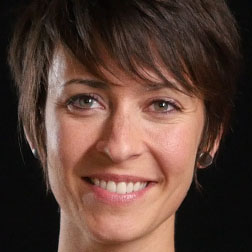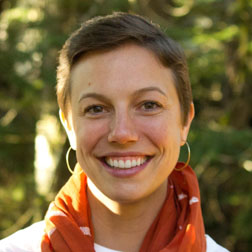As an experienced leadership developer, I thought myself quite the expert at developing capacity in groups and helping leaders master new competencies, and over decades of work, I felt I’d learned the most effective ways to do that.
The learning culture I had long subscribed to is characterized by its emphasis on valuable information and knowledge combined with engaging, self-directed approaches to learning. My approach as a trainer and facilitator used tried and true rituals and forms to facilitate learning—chatty peer-to-peer activity, self-directed learning, information gathering and opportunities to create conceptual maps and theories, experiential learning, small groups that exchange ideas and test out concepts.
In many ways, my approach as a workshop trainer was to point to new information or knowledge, and devise creative ways for the information to be absorbed and digested. And back then, I would have asserted that this experience I was offering was “transformative” for my clients.
Yet my first personal experience of truly transformative learning took place in a setting that surprised me—at a live intensive with an Integral Zen teacher—which didn’t at all match the existing expectations I had about how learning “should” take place.
When I first entered the room where the workshop “teacher” sat at the front of the room, facing chairs arranged in rows, it felt really weird. In fact, it felt wrong to me—ineffective, and even inappropriate.
Because I favored the view that really effective learning is something that’s not done by someone sitting at the front of a classroom, I was quickly caught in a tumbling list of judgements and assessments about where I was and what was going to happen.
You may have noticed this happening to you in a workshop or training. Your seeking mind impatiently wants to hear about “the top three characteristics of XYZ”; or you notice your judging mind becoming annoyed because “I get this already” or “I don’t like the way this is presented.”
Of course, discernment is good and useful. However, it also orients us by fixing us to our opinions. With fixed opinions, we become less open and available to information, novelty, creativity, and less able to respond fluidly to complexity.
What surprised me was that the experience challenged my notions of ideal learning environments and engaged an entirely new dimension of me in the learning process.
My experience working with an Integral Zen teacher invited me to go much deeper than I would normally (in a typical workshop setting) for several reasons. Obviously perhaps, it actively engaged me in introspection and reflection. I instantly felt a quieting down in my body—a settling, grounded feeling as my breath slowed and my awareness ceased jumping from thought to thought.
Because the teacher offers teaching injunctions that are often just a simple phrase or question (a “pointing out” instruction), my attention is drawn to an inner dimension, in contrast to the hyperactivity of my analytical mind. Through the process, the teacher is adept at helping me to see my own inner dialogue and the fixations of my mind. Gradually, with practice and attention, I can begin to release them. As a result, my awareness becomes freer.
As an “experienced” professional facilitator, this changes the way I relate to my self, others, and the environment around me. My identification with being an expert—the authoritative figure at the front of the room—loosens. My need to have the chairs set up in a particular configuration lightens. The persistent struggle of my ego to defend me against something, someone, some facet of my experience is a struggle I can see anew, and therefore relate to. As a result, the degree of choice and the freedom I have access to expands dramatically.
Sure, it’s true—there is always a lot to do when facilitating or engaging groups. We manage time, agenda, listen for agreements. Our minds are constantly engaged, it seems, in what is happening out there. Yet what I have learned, and continue to learn, is how much is going on in here—and how vital it is for me to be able to access and use this inner awareness.
From the inside, when my presence is centered and stable, I can use my self-awareness as a resource. I am able to notice reactions, contractions and pick up on subtleties I would have missed, much more quickly. Over time, I can relax into an attitude of not-knowing, which frees up more capacity for me to be open and respond to what is arising in the moment. I can include more of myself in my facilitation, and can more masterfully give people the experience of having their contributions included and understood. I am more fluid, agile, responsive, and authentic.
When we learn how to relax the grasping and judging our minds so often engage in, we can be more fully present to our entire experience, which means we can embody inquiry, rather than having to identify with what we know and the answers we already have.
Cultivating the capacities of grounded presence and perspective taking are essential for those who wish to work moment-by-moment with the complexity and diversity inherent in group dynamics and organizations. Utilizing these capacities, a masterful Integral Facilitator® orients to the true nature of the group process, its being and becoming, and its context and environment. In my experience, Zen awareness is the domain that offers me greater access to my own depth, which is precisely the doorway to accessing more depth in service of the group.
The challenge we face as leaders and facilitators is not about merely more—more expertise, more knowledge, more skills. If we are really on the edge of our game, at the front line of our own development, then our challenge is to find opportunities where we can receive and accept the gift of being seen, choose to participate in our own growth, and open up to being an instrument for the emergence of what will most serve all of us.



